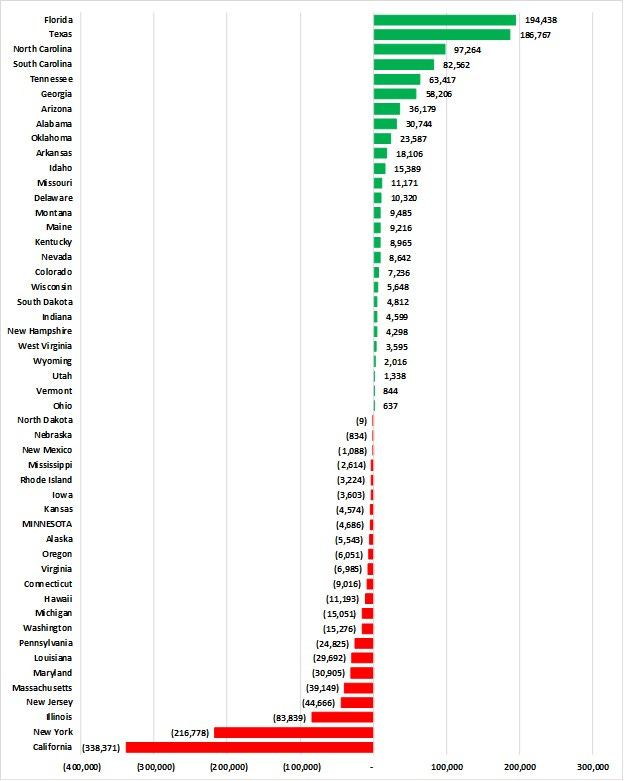In 2019, just over twelve miles off the coast of Phuket, Thailand, Chad and Nadia Elwartowski settled into their new home.
Chad and Nadia are seasteaders, part of a niche, ambitious, and libertarian-flavored movement geared towards building floating cities. Because international waters aren’t under any state’s exclusive jurisdiction, seasteaders could theoretically establish new independent states, free from government interference. Chad and Nadia made history as the first to live out the seasteading ideal, hoping to prove that living autonomously could be a radically different and better way of life.
“They have a monopoly on land, but they don’t have a monopoly on sea.” — Chad Elwartowski
The appeal of seasteading is simple: if you don’t like it, you can leave. Floating houses provide physical, political, and ideological freedom. If a seasteader doesn’t like the way their community is developing, they can leave to join (or start) a new one.
Many new categories start out this way, where members of an existing system choose to leave and build a new one instead of trying to change theirs from within. Not surprisingly, incumbents tend to neglect members who want to make big changes to the status quo — it goes against their very existence. As a result, these members are left with no choice but to leave and start something new. Lucky for them, the future is built by playing new games with new rules. If you aren’t paying attention, you’ll miss it.
Some examples are obvious in hindsight.
Martin Luther’s initial attempt to reform the Catholic Church's practices through his Ninety-Five Theses in 1517 ended up resulting in his excommunication, which ultimately led to the founding of the Lutheran Church. In 1776, when American colonists were frustrated by high taxes and lack of representation in British Parliament, they didn’t just lobby for reform; they wrote the Declaration of Independence and founded a new country based on principles of democracy and self-governance. In 1994, when young entrepreneur Jeff Bezos wanted to sell books online, he didn’t seek the expertise or support of traditional book retailers. He started a new company in his Bellevue garage and called it Amazon. The new doesn’t necessarily go against the old. It just circumvents it.
One of my favorite recent examples of this is crypto.
Bitcoin emerged in the wake of the 2008 financial crisis, which had exposed significant vulnerabilities in the architectures of the centralized banking system. Its promise of decentralization and financial sovereignty appealed to a growing base of individuals who had become disillusioned with the opacity of traditional finance. Many traditional investors and technologists dismissed crypto as a fad, a speculative bubble, or a tool for illicit transactions. While they were not paying attention, those who understood crypto’s potential continued to build. Slowly, and then all at once, this small-scale experiment evolved into a much larger community and ecosystem, aligned by shared beliefs and economic incentives. Bitcoin was the best performing asset of 2023. Ethereum averages over 1 million transactions per day. Following their approval in January of this year, it took only seven weeks for Bitcoin ETFs to reach inflows that took gold ETFs three years.
This growth is not just numerical. It represents a profound shift in the way people view and interact with money. Crypto networks offer a way to circumvent traditional financial intermediaries, giving individuals unprecedented control over their financial transactions and identity. It is a societal change first, a technological one second.
Crypto would have never survived if it were built within the traditional financial system, with entrenched interests fighting back to protect the status quo. It was born on the outside and thrived as a result. Emerging systems have no choice but to circumvent their incumbents, because The Old does not like The New.
Chad and Nadia learned this the hard way — I didn’t tell you the end of the story! Only two months after they moved into their seastead, they found themselves trying to escape the Thai Navy, who deemed them in violation of the country’s sovereignty (a capital crime). They eventually fled to safety and settled in Panama.
I’m not a seasteader, and I don’t know Chad or Nadia personally, but it seems to me that the attack on their floating pod highlights exactly why they went out to the middle of the ocean in the first place. As Chad wrote in a Facebook post during their escape: “We just wanted to be free. If just for one day.”
Chad and Nadia’s desire for freedom and autonomy is a common thread among many pioneering movements, including crypto. Despite being relatively young, the crypto industry has arguably made more progress in disrupting the financial system than mavericks in other, older industries have in challenging their status quo. But crypto represents a burgeoning trend worth paying attention to. Across many different categories, people who don’t feel served or seen by the existing systems are building new ones.
Take education, for example. Today, American student debt is over $1.7 trillion. Confidence in higher education has plummeted to record lows. Last year, Harvard was ranked the worst college for free speech. More than half of students from a third of American colleges earn less than high school graduates. The system feels uniquely broken.
But new institutions are emerging. The University of Austin, founded in 2021, is “committed to the fearless pursuit of truth.” Elon Musk’s new STEM-focused grade school (also in Austin) may start accepting students as soon as this summer. Startups like Synthesis, Minerva, Primer, and Sora, along with public goods like MIT OpenCourseWare, Khan Academy, and Stanford Online, are working to bring these specialized experiences to students everywhere. With new tools coming to market every day (I’m thinking about the recent GPT-4o tutor demo, among others), you can imagine how incumbent systems might continue to be disintermediated.
Replit CEO Amjad Masad, in response to a critical tweet about Mentava: “Of course we are building [a] parallel track for kids to learn, build, and earn. What—you thought you can capture the institutions and that we will just send our kids to be indoctrinated into your loser ideas & worldview? You haven’t even uncovered a fraction of what we are building.”
Self-directed healthcare is another category to pay attention to. The United States healthcare system is expensive and dysfunctional. We spend more on healthcare than any other developed country, but objective measures of health quality are relatively low. In fact, the U.S. is actually below average for a number of metrics including life expectancy (the lowest among large, wealthy countries) and obesity rates (nearly twice the OECD average). Hospital services have only become more expensive, and yet it seems that everyone is getting sicker.
“A hospital is a place of filth, torture, and death, a sort of antechamber to the tomb.” — George Orwell, How the Poor Die (1946)
Extensive regulations and the monopolization of information by incumbents have prevented the healthcare industry from keeping pace with other technological advancements. Enter self-directed healthcare — the movement towards personal wellness, encompassing longevity research, functional medicine, biohacking, and more. In many ways, self-directed healthcare does not aim to be the successor to traditional medicine. It isn’t going against the incumbent; it’s circumventing it. You don’t need healthcare committee approval to treat yourself. New entrants like Superpower, a personalized digital longevity clinic, Prophetic, a non-invasive neural device for lucid dreaming, and Nucleus, a consumer genetic testing company, are a few examples.
The most literal example of people exiting an incumbent system is in physical space — people voting with their feet. Just like Chad and Nadia did with their seastead, more and more individuals are leaving existing communities and joining (or building) new ones. Census Bureau data shows that between 2022 and 2023, red states like Florida and Texas saw the highest net domestic immigration, while blue states like California and New York saw the highest net domestic emigration.
Anyone who lives in the United States can imagine why this might be. People like warm weather and low taxes. COVID-19 accelerated this trend, when it became possible (and acceptable) to work from anywhere.
Again and again, we are reminded that technology gives individuals choice and control. The Old does not like The New. But now, The New can exit. And they are!
They’re also exiting to Miami, which is home to a growing number of startups (and acts like a startup in its own right). They’re exiting to Dubai, where attractive policies draw immigration and investment. And they’re exiting to entirely new communities: Prospera, Praxis, Cabin, Culdesac, Vitalia, Zuzalu, Pursuit — and yes, seasteads. Companies like Nomad List and CitizenX make these migrations easier than ever before.
“When experts are wrong, it’s often because they’re experts on an earlier version of the world.” — Paul Graham
These unfolding narratives are being driven by both technology and talent. Choosing good quests starts with choosing good leaders first. What this means is that alongside the creation of entirely new categories, there will be new credentialing systems to underpin them, too. Incumbents will lose the ability to understand and identify talent, further separating The Old from The New. This is a good thing and a necessary evolution.
The common theme across all of this is that new innovation starts to take place when the incumbent is splitting at the seams. Importantly, though, the incumbent doesn’t usually collapse from a direct attack. Instead, they’re bypassed by new ideas that simply start without them.
We could do a better job of welcoming and celebrating this. Building towards a culture of progress matters. The way we speak about the world is the way we create it.
So let’s be in defense of the new. Let’s not just watch the future unfold. Let’s help shape it, too.
Thank you to Anu Atluru, Mike Dempsey, Kevin Gee, Erik Torenberg, Eoghan McCabe, Mene Mazarakis, and Rune Kvist for reviewing.
The materials presented on Gaby Goldberg's newsletter are my opinions only and are provided for informational purposes and should not be construed as investment advice. It is not a recommendation of, or an offer to sell or solicitation of an offer to buy, any particular security, strategy, or investment product. Any analysis or discussion of investments, sectors or the market generally are based on current information, including from public sources, that I consider reliable, but I do not represent that any research or the information provided is accurate or complete, and it should not be relied on as such. My views and opinions expressed in any website content are current at the time of publication and are subject to change.








this was great. loved the examples you used ie: Lutheranism, American Rrevolution, etc